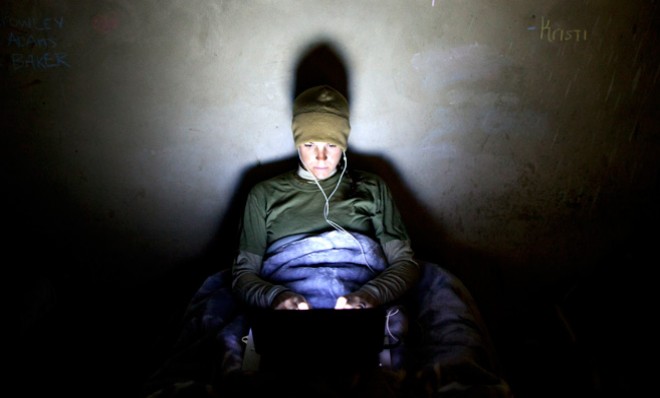The Army really doesn't want soldiers reading about the NSA leaks
And liberal critics are steamed


A free daily email with the biggest news stories of the day – and the best features from TheWeek.com
You are now subscribed
Your newsletter sign-up was successful
The Army is blocking access on its computer networks to reports by Britain's Guardian and other online news outlets on Edward Snowden's leaks on National Security Agency phone and internet data mining, according to the Monterey County Herald. Gordon Van Vleet, a spokesman for the Army Network Enterprise Technology Command, told the California newspaper that the Defense Department is using online filters as part of its routine "network hygiene" aiming to limit fallout from unauthorized disclosures of classified information.
This is not a first. The military did the same thing in 2010 to block the websites of The New York Times and other news organizations for hosting once-secret U.S. diplomatic cables provided by WikiLeaks. As the White House explained at the time, "classified information, whether or not already posted on public websites or disclosed to the media, remains classified, and must be treated as such by federal employees and contractors, until it is declassified."
The news left many journalists and commentators pretty peeved. "This is what China does," tweeted New Yorker Washington correspondent Ryan Lizza. "Astounding," wrote Gizmodo's Matt Novak. "Seriously, tho," chimed in Daily Kos contributor Jake McIntyre. "This is totalitarian."
The Week
Escape your echo chamber. Get the facts behind the news, plus analysis from multiple perspectives.

Sign up for The Week's Free Newsletters
From our morning news briefing to a weekly Good News Newsletter, get the best of The Week delivered directly to your inbox.
From our morning news briefing to a weekly Good News Newsletter, get the best of The Week delivered directly to your inbox.
Totalitarian? Steve M. at No More Mister Nice Blog says some of the outrage over the website blocking is "a bit overheated." He says he does not approve of the censorship, but suggests that limiting military personnel's access to leaked secrets is not something that should cause the rest of us to get paranoid.
When they start blocking civilian access to websites in America, then we have a Chinese-style internet policy. People in the military always lose some freedoms the rest of us have — that's the nature of the military — and rightly or wrongly, restrictions on media access have often been part of the deal. [No More Mister Nice Blog]
Of course, whether it's worth the Army's trouble is another question. "At this point," says Jon Russell at The Next Web, "it's more than likely that most of the armed forces are well aware of the allegations, given that the government has filed espionage charges against Snowden. His claims — which include allegations of hacks against China, monitoring of G20 ministers, collecting U.S. internet data, and more — have made front page news across the world in recent weeks, it's far fetched to believe it has escaped the attention of servicemen."
A free daily email with the biggest news stories of the day – and the best features from TheWeek.com
Harold Maass is a contributing editor at The Week. He has been writing for The Week since the 2001 debut of the U.S. print edition and served as editor of TheWeek.com when it launched in 2008. Harold started his career as a newspaper reporter in South Florida and Haiti. He has previously worked for a variety of news outlets, including The Miami Herald, ABC News and Fox News, and for several years wrote a daily roundup of financial news for The Week and Yahoo Finance.
